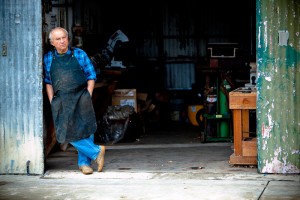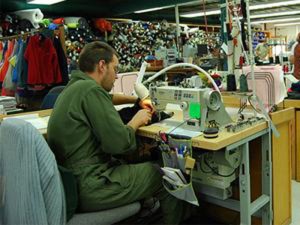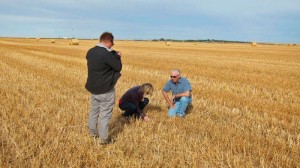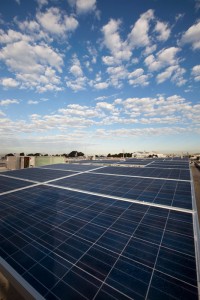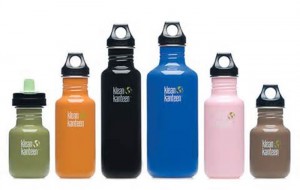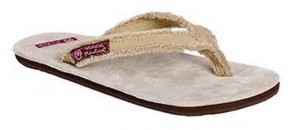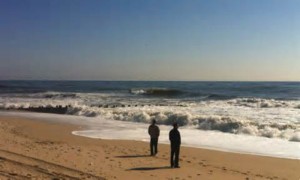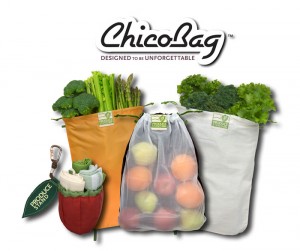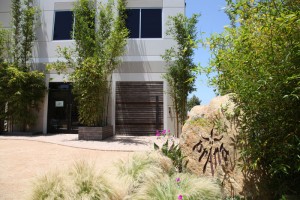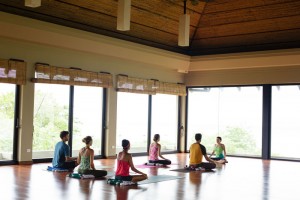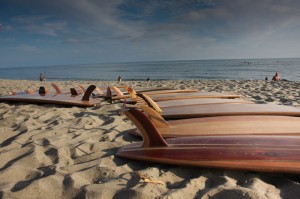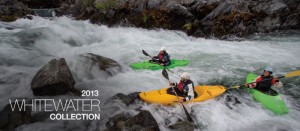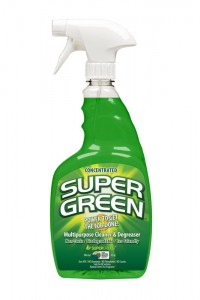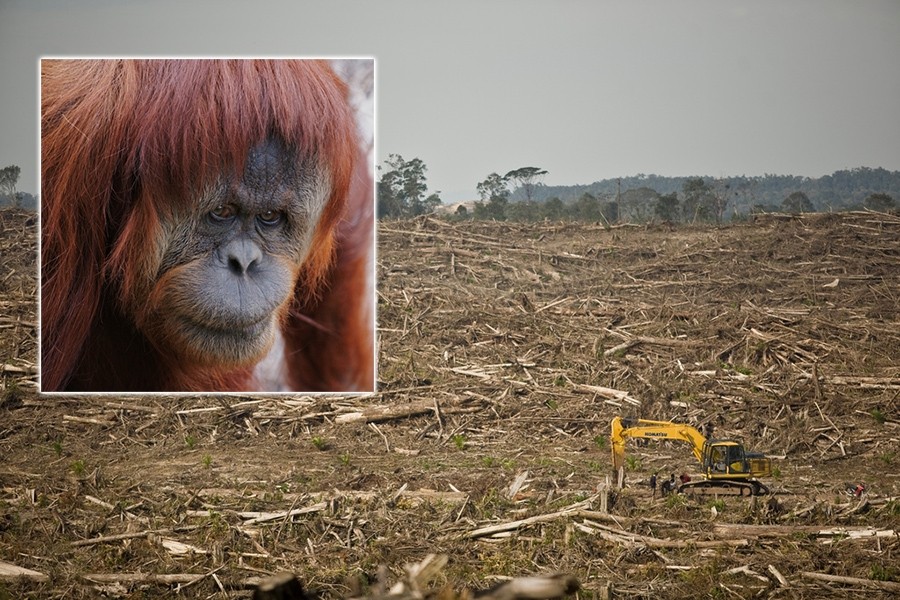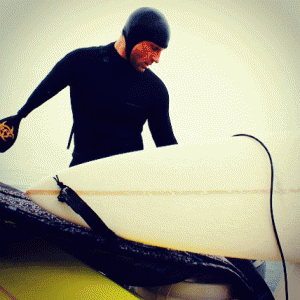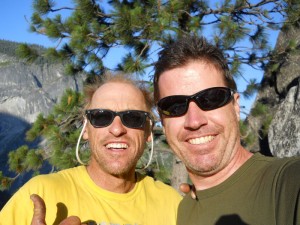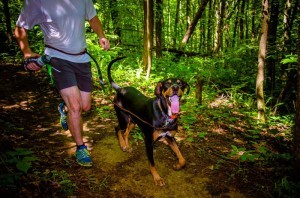- Tahoe’s Nevada Beach Tops the List of Hard-to-Book Campgrounds - 07/17/2024
- Cannabis Watershed Protection Program Cleans Up Illegal Grow Sites - 07/10/2024
- French Fire - 07/05/2024
10 Green Companies
Twenty-three years ago I was part of a team of environmental activists bringing awareness to the cutting of ancient redwood forests in Humboldt County. At the time, I was pleased to note that a certain clothing company was donating high quality outdoor clothing to myself and other activists. I also noticed that the rain gear and pants and shirts were extremely durable and high quality. In the next two decades, I watched that company explode in popularity.
The clothing company was Patagonia, and it was one of my first encounters with a radically “green” business. By supporting peaceful activism, Patagonia was taking green entrepreneurship to the next level. With Patagonia and other companies in the lead, California has become a world leader for cutting-edge, green businesses.
Here, we include a short list of companies that have each made a genuine effort to keep California green. No company is 100% green, but many strive toward that ideal in unique and exciting ways. These ten companies make our list for their innovation and for their efforts to inspire the rest of us.
——————————————————————————————————————————–
1
The Pioneer
Patagonia
During the 1970’s, when environmentalism was on the fringe, Patagonia began to develop its own corporate counter-culture. During the whaling and timber wars of the late 1980’s, the company pledged a ‘tithe’ of its profits to support environmental activists. In 1996, a self-audit showed that conventionally grown cotton was the most polluting material in Patagonia’s supply chain. Their sudden demand for a green alternative virtually created the organic cotton industry in California. In 2001, Patagonia launched the 1% for the Planet initiative, and later started the Conservation Alliance. Today, 1% for the Planet includes over 1,000 businesses and total giving (or ‘tithing’) has surpassed $50 million.
Recently, Patagonia began publishing the Footprint Chronicles, a website where the company transparently reveals to the consumer the impact of manufacturing and delivering each of its products. Decade after decade, Patagonia has shown a willingness to accept financial risk in order to minimize its impact on the environment, and the Footprint Chronicles is another example of Patagonia challenging itself to excel. This willingness of Patagonia to challenge itself goes back to its founder, Yvon Chouinard, the influential rock climber, mountaineer, and ice climbing pioneer.
——————————————————————————————————————————–
2
Food Matters
Clif Bar
Clif Bar buys carbon offsets, as several of these companies do, and in Clif’s case the program has contributed to the construction of 30 new wind energy projects. Like Patagonia and others, Clif provides a healthy and groovy work
environment for its employees and incentives like the Cool Commute Program to promote alternative commutes. Also in common with the other companies on this list, careful attention is paid to the building practices at their new locations. At Clif’s Emeryville headquarters, sustainably sourced materials include recycled wood and 380 sound absorbing panels made from recycled denim, and the building is powered by a smart solar array and a solar thermal water heating system.
Where Clif stands out most is in their dedication to organic food. Since 2002, they’ve purchased 330 million pounds of organic grains, fruits and nuts. They continue to boost the percentage of their organic purchases every year. As Clif has grown from a California start-up into an international business, they’ve become a river of vitality to the organic farming industry.
——————————————————————————————————————————–
3
Bottles with Purpose
Klean Kanteen
We’ve all taken a drink from a plastic container that’s been out in the sun, or even one that hasn’t been exposed to heat, and we’ve tasted that acrid taint of plastic. Bisphenol A, otherwise known as BPA, is present in some plastic drinking containers and the linings of some aluminum and tin cans. BPA can behave in a similar way to estrogen and other hormones in the human body. Studies are ongoing, but it is irrefutable that we should avoid ingesting BPA.
Apparently, we’ve become too busy to brew our own tea or mix our own Kool-aid, so we buy single-use toxin-leaching plastic containers. Klean Kanteen asks us to imagine a plastic-free shopping day, beginning with our beverage containers. Given that there is an “island” of plastic floating in the Pacific Ocean that recently was calculated to be twice the size of Texas, avoiding plastic containers seems more than reasonable. Since Klean Kanteens are safe, affordable, lightweight, and durable enough to last a lifetime, the company makes our list for changing consumer behavior and changing the world at the same time.
——————————————————————————————————————————–
4
Keeping Beaches Clean
Ocean Minded
With the understanding that everything eventually ends up in the ocean, Ocean Minded is a footwear company based in San Clemente that embodies the character of its name. By partnering with organizations such as the Surfrider Foundation and being a member of the Conservation Alliance, Ocean Minded has helped to preserve wild places for their habitat and recreational value.
Also hosting dozens of beach cleanups every year, Ocean Minded volunteers removed 27,213 pounds of trash between 2009 and 2011. On the fun side, Ocean Minded promotes water events ranging from surf contests to SUP yoga outings. They offer footwear made from environmentally friendly materials, including vegan options for those who would rather not wear products derived from animals. The spirit of the ocean reveals itself in the fashion of the products they offer, with labels such as Waveseeker, Seaweed and Del Mar.
——————————————————————————————————————————–
5
Bring Your Own Bag
ChicoBag
Since 2005, ChicoBag has worked to eliminate the unnecessary use of single-use paper and plastic bags. Perhaps one of the key challenges to eliminating these landfill contributors is the simple act of remembering to bring our reusable bags to the store. As many communities are outlawing the use of plastic bags, a shopper who forgets to bring his/her own might end up juggling a dozen items through the parking lot. Consequently, it has been a primary mission at ChicoBag to create bags that are “unforgettable”. The importance of fashion, therefore, rises to the equal of functionality and convenience.
Their product line now includes a stylish bag for every purpose, including backpacks, duffels, lunch sacks, messenger, biking, gear slings and purses, and their trademarked rePETe products are made out recycled plastic bottles. Each product provides a creative solution to our reliance on disposables.
——————————————————————————————————————————–
6
Yogic Mind
prAna
With humble beginnings in 1992, prAna cut and sewed yoga apparel in a garage and shipped it to customers in surplus fruit boxes gathered from the local grocery store. For hang tags, they ground up old newspapers, added essential oils and cut out the handmade paper with a pizza cutter. By 2011, they had grown to become one of the nation’s top 10 buyers of organic cotton. They offer products made from recyclables, hemp, bamboo and wool, some of which are Fair Trade certified.
At Prana the yogic mind is ever attentive, and mindfulness is promoted as an ideal among individual associates. Rather than simply following the directives of upper management, prAna employees are encouraged to own a piece of the decision-making process with regard to everything from product design to materials to waste reduction. This all-together approach within prAna follows an ecological business model rather than that of a cascading hierarchy.
——————————————————————————————————————————–
7
Shaping the Future
Ventana Surf Company
Born from a passion for surfing and the environment, Martijn Stiphout and Tyler Frome founded Ventana Surf Company and started building boards to marry these elements together. They made a conscious choice to avoid toxic foam and polyester and started working with wood, experimenting with traditional and modern board shapes, fine-tuning construction methods and honing their wood-working and shaping techniques. Every board is custom made, and while the boards are still coated with Epoxy resin, the wooden construction method produces very little waste: almost every piece of scrap wood finds life elsewhere, and the sawdust is collected and recycled. Recycled wood boards are in the works for the future, and fortunately there are promising developments with bio-based resins. An entirely earth/ocean friendly process for making surfboards is a near-future reality.
——————————————————————————————————————————–
8
Into the Water
Kokatat
Kokatat began as an outdoor gear company in 1971 before making the decision to focus solely on paddle sports. While their name has become synonymous with kayaking around the world, they make 90%
of their products at one location in Arcata, where much of the production is powered by a large array of solar panels. Their flexible made-to-order approach has eliminated the need to warehouse finished goods.
Kokotat recaptures and reuses the vast majority of the water that they use to test their dry suits with. In each of their personal flotation devices, they use PVC-free foam. Known for quality, Kokotat is a small company in the best sense.
——————————————————————————————————————————–
9
Made in California
Western Mountaineering
There was a saying during the great awakening of environmentalism in the 1970’s: “Small is beautiful.” Western Mountaineering has been building a reputation for excellence in the realm of outdoor gear for over 30 years, and they remain a relatively small and entirely independent company. They make all of their sleeping bags at a single factory in San Jose, an approach which facilitates the goal of producing the highest quality goods. Lucky for us, buying local and buying green are made easy with Western Mountaineering outdoor gear.
——————————————————————————————————————————–
10
Solvent Free
Super Green
The liquid cleaner Super Green was developed by former BASF chemist Donato Polignone as a response to outdated cleaning formulas like Simple Green that contain harmful chemicals. Manufactured in Emeryville, Super Green is sold to bike shops, restaurants and green retailers in California and New Zealand.
Solvents, or volatile organic compounds (VOCs), react in sunlight, producing an air pollutant known as ground-level ozone, which can be harmful to animals and plants. The mission of Super Green is to spread the good news that going completely solvent free is now possible.
— Steve Shaw

